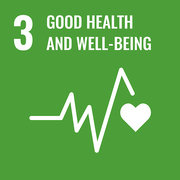
Workers' psychological wellbeing during COVID-19: vulnerabilities and protective factors
The COVID-19 pandemic has significantly impacted many aspects of people's lives, including work, with crucial implications for workers' wellbeing. The spectre of an economic recession, the fear of losing one's job, the change of established habits, and the need to acquire new ones to cope with the emergency are among the various factors that cause unease.
However, workers' alterations in psychological functioning are neither inevitable nor systematic. Great differences have been found from individual to individual, even among people doing the same job or belonging to the same occupational field. This has raised important questions about the main vulnerability and protective factors at work during this period and, ultimately, about the psychological costs of containment measures.
A new research collaboration between Sapienza University of Rome, the Universities of Trento, Bologna, Mannheim and the Salesian Pontifical University examined the role of a wide range of work-related personal vulnerability, stress and social resource factors in assessing workers' wellbeing during the COVID-19 outbreak. The study is based on the conservation of resources theory, which assumes the limitation of psychological resources - personal, environmental and occupational characteristics - on which people can draw to overcome adversity and stressful events.
The survey, published in the journal Current Psychology, was conducted on a large sample of around 600 workers, interviewed in the first lockdown phase, from March 22 to April 6, 2020, who were asked to answer questionnaires to detect their psychological characteristics and level of personal and work adaptation.
The results revealed both critical vulnerabilities and key protective factors. Among the former, job insecurity and insecurity perceptions appear to be associated with worse emotional adjustment, especially for those with fixed-term contracts. Among the protective elements, positivity, emotional stability, and conscientiousness emerged. There were also interesting interactions between individual vulnerabilities and resources: positivity, for example, was found to be a key protective factor, decreasing the perception of stress caused by vulnerabilities. Similarly, feelings of frustration, anger or fear caused by the beginning of lockdown were lessened in those with more positive future expectations.
"One element of particular interest, among all those examined, is the possibility of working from home," says Guido Alessandri of Sapienza University, the study's first author. "Those who had an open-ended contract, or who in any case had a solid perception of their working position, welcomed this new possibility. On the contrary, those who felt a strong sense of job insecurity and precariousness found it very stressful".
Finally, the adverse effects of economic stress due to the pandemic were found to be reduced by certain personal characteristics such as dedication or by the type of the employment relationship, such as the type of contract or the importance accorded to the specific work.
The results obtained make it possible to clearly define the network of resources and vulnerabilities most relevant to the different types of workers and design and implement interventions to support workers in the phases following this challenging period. Collectively, the determinants make it possible to infer the profile of workers who are most vulnerable to lockdown-induced stress and who are likely to pay more in the long run than others because they lack the resources to cope.
References:
Determinants of workers’ well-being during the COVID-19 outbreak: An exploratory study – Guido Alessandri, Lorenzo Filosa, Sabine Sonnentag, Giuseppe Crea, Laura Borgnogni, Lorenzo Avanzi, Luigi Cinque, Elisabetta Crocetti – Current Psychology. 2021https://doi.org/10.1007/s12144-021-02408-w
Further Information
Guido Alessandri
Department of Psychology
guido.alessandri@uniroma1.it
